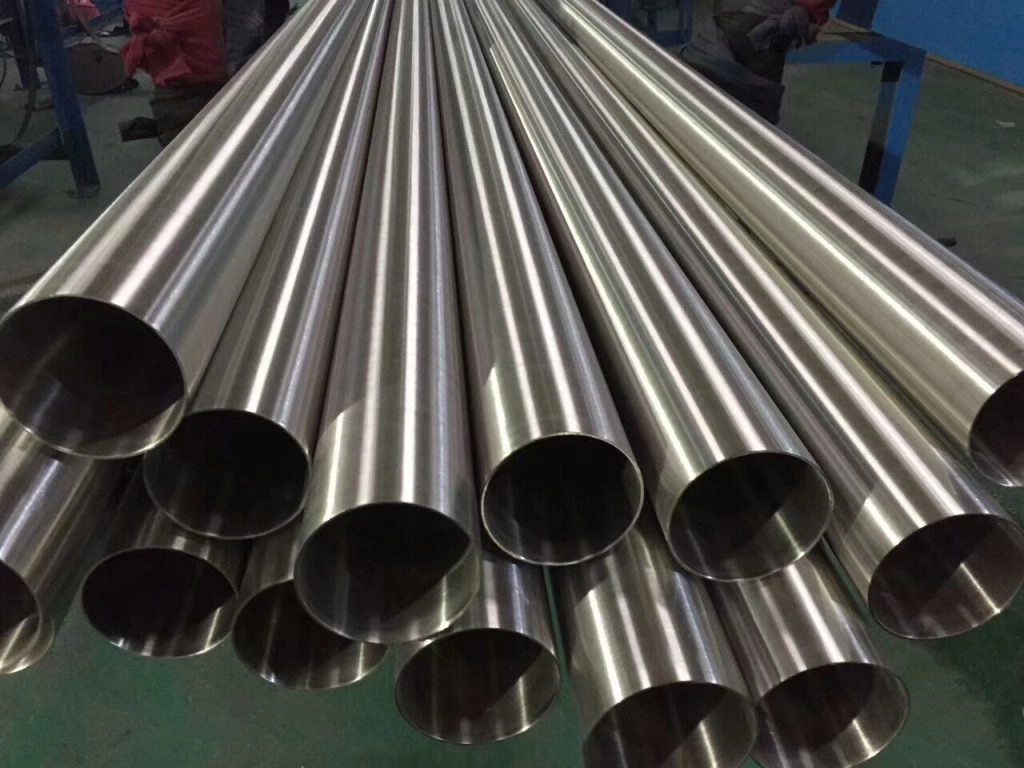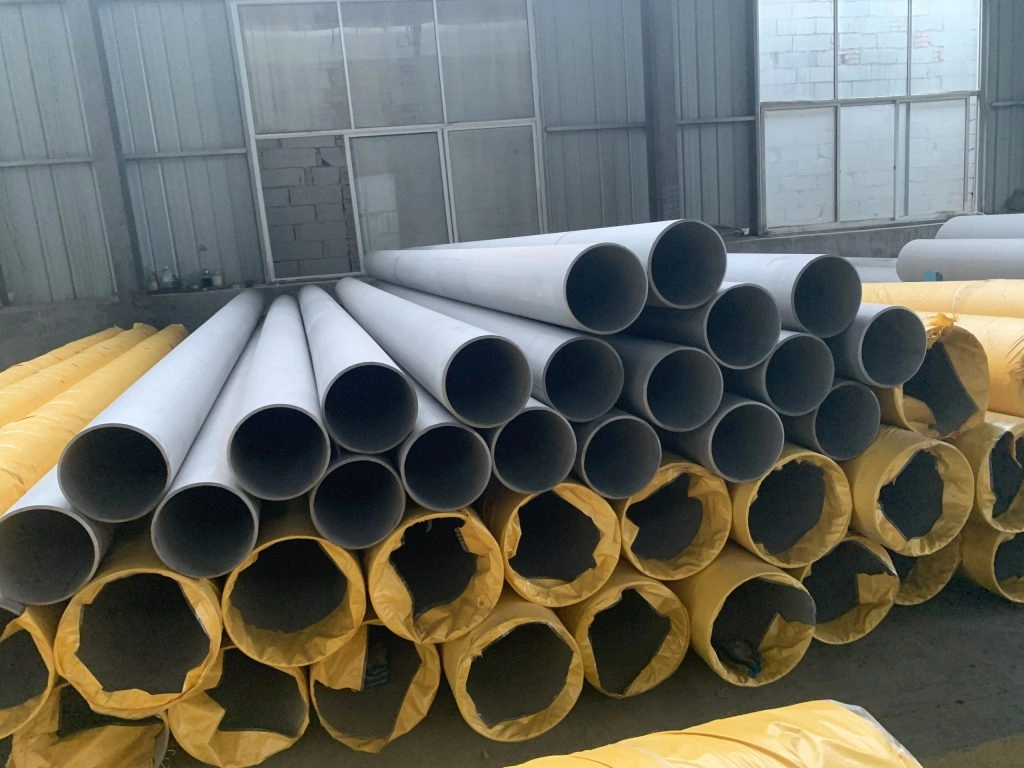Understanding the Importance of Material Strength in Stainless Steel Pipes
Key Mechanical Properties That Define Material Strength
Stainless steel pipes need to be tough. Their strength comes from a few key traits. These include tensile strength, yield strength, hardness, and elongation. Tensile strength is how much pulling a pipe can take before it snaps. Yield strength shows when a pipe starts to bend for good. These traits tell us how pipes handle heavy loads or pressure.
Pipes like these are used in hard jobs. They carry water, gas, or chemicals in places like oil fields, factories, or construction sites. Their toughness lets them hold up under strong pressure without breaking.
Why Material Strength Matters in Industrial Applications
Tough pipes are super important in big industries. If pipes fail, bad things happen. Work stops. People might get hurt. It can cost a ton of money. Picking pipes with enough strength keeps things safe and working for years. Strong pipes can take hits, shakes, or heat changes without trouble.
For instance, in hot steam systems or pipes with harsh chemicals, only super strong pipes stay solid. They don’t bend or burst. Plus, tough pipes don’t need fixing all the time. This saves cash and effort.
The Role of Composition and Alloying in Enhancing Strength
What’s in stainless steel makes it strong. To make it, workers melt old metal and extras in a big furnace called an electric arc furnace (EAF). They heat it with powerful electrodes for hours. This makes a hot, runny mix. The mix has iron and stuff like chromium, nickel, molybdenum, and carbon.
Chromium stops rust. Nickel makes pipes bendy and tough. Molybdenum adds extra strength. Carbon makes pipes harder. Mixing these just right decides how good the pipe is. More chromium fights rust better. More nickel helps pipes work in super hot or cold places.
Core Characteristics of High-Quality Stainless Steel Pipes
Corrosion Resistance and Its Impact on Long-Term Performance
One cool thing about stainless steel pipes is they don’t rust easily. Corrugated Stainless Steel Tubing (CSST) is a bendy, thin pipe for gas or water. It’s made from special steel that fights rust and bends well. This means pipes stay strong in wet, salty, or chemical-filled spots.
This is awesome for places like ships, water plants, or food factories. Pipes there need to stay clean and last forever.
Tensile and Yield Strength Benchmarks for Stainless Steel Pipes
Grades like 304 and 316 stainless steel are super tough. Their tensile strength is between 515 MPa and 620 MPa, depending on how they’re made or heated. Yield strength is usually 205 MPa to 290 MPa.
These numbers help builders pick the right pipes. For example, duplex stainless steels are even stronger but lighter. They’re great for tough jobs like oil platforms or deep-sea pipes.
Heat Resistance and Structural Integrity Under Stress
Pipes need to handle heat, too. In hot spots like exhaust systems or power plants, pipes can’t sag or crack. Molybdenum helps pipes stay tough in high heat. It stops the metal from changing inside. This keeps pipes solid even when heat goes up and down.
How Stainless Steel Pipe Manufacturers Ensure Superior Quality
Rigorous Manufacturing Standards and Certifications (e.g., ISO9001:2015)
Great pipe makers follow strict rules. One big rule is ISO9001:2015. It makes sure every pipe is top-notch, from picking metal to checking the final product. Sunrise New Material has this ISO9001:2015 certificate. It proves they make pipes people trust all over the world.
Advanced Production Techniques for Enhanced Durability
Pipe makers use clever tricks to make pipes last. They use TIG (Tungsten Inert Gas) welding for smooth seams. Cold drawing makes pipes the exact right size. Annealing softens metal after shaping to make it stronger. These tricks make pipes tough and clean inside. That’s important for places like food factories where germs can’t hide.
Quality Control Processes Used by Leading Stainless Steel Pipe Manufacturers
Top makers check pipes a lot. They use ultrasonic testing (UT) to spot tiny cracks. Hydrostatic tests see if pipes can take pressure. Laser tools check sizes. Spectrometry checks what’s in the metal. All these tests make sure pipes are perfect. This stops leaks or breaks when pipes are used.
Differentiators Among Stainless Steel Pipe Manufacturers
Customization Capabilities to Meet Project-Specific Requirements
Not every job needs regular pipes. Some need special sizes or coatings for tough spots. Qingdao Sunrise New Material Co., Ltd. Customization Service makes pipes just for your job. They can tweak wall thickness or change alloys to fight certain kinds of rust.
Integration of Global Sourcing and Logistics Solutions
Big projects need pipes fast, no matter where in the world. Only makers with awesome supply chains and shipping partners can do this. They get pipes to you quick and follow local rules. This keeps projects on time.
Reputation, Experience, and International Project Participation
Makers who’ve done big projects worldwide know their stuff. They’ve handled tough jobs and tight deadlines. Their good name makes engineering companies trust them for huge orders without messing up quality.
Factors to Consider When Choosing a Stainless Steel Pipe Manufacturer
Evaluating Technical Specifications and Product Grades
Buyers should look at a maker’s pipe grades, like 304L, 316L, 321, 904L, or Duplex. They should ask for Mill Test Certificates (MTCs). These show pipes meet rules like ASME B36.19 or ASTM, used in different places.
Importance of After-Sales Support and Delivery Reliability
Good help after buying matters. Makers should answer setup questions and deliver on time. For big jobs, being late can cost a fortune. Trustworthy makers stick to schedules to keep things smooth.
Assessing Manufacturer’s Track Record in International Projects
A maker’s past work on global jobs shows they can handle different rules and high standards. From oil plants in the Middle East to ports in Southeast Asia, their experience counts.
Frequently Asked Questions (FAQs)
- What are key mechanical properties considered by stainless steel pipe manufacturers?
Tensile strength, yield strength, elongation, and hardness show how pipes deal with pressure or stress in tough jobs. - How do stainless steel pipe manufacturers ensure corrosion resistance?
They mix in lots of chromium, nickel, and molybdenum. These make a shield that stops rust, even in wet or chemical places. - Why should I choose certified stainless steel pipe manufacturers?
Rules like ISO9001:2015 mean makers check everything carefully. This makes sure pipes work great and last long. - Do all manufacturers offer customized solutions?
Nope, only some do. Qingdao Sunrise New Material Co., Ltd. Customization Service can make pipes with special sizes or alloys for your job. - What role does heat resistance play in selecting stainless steel piping?
It keeps pipes strong in hot places, like power plants or exhaust systems. They don’t bend or break when heat changes.
Want to know more about getting awesome pipes for your project? Curious about our ISO-certified process? Reach out today or check out Qingdao Sunrise New Material Co., Ltd., your go-to for top metal solutions worldwide.








